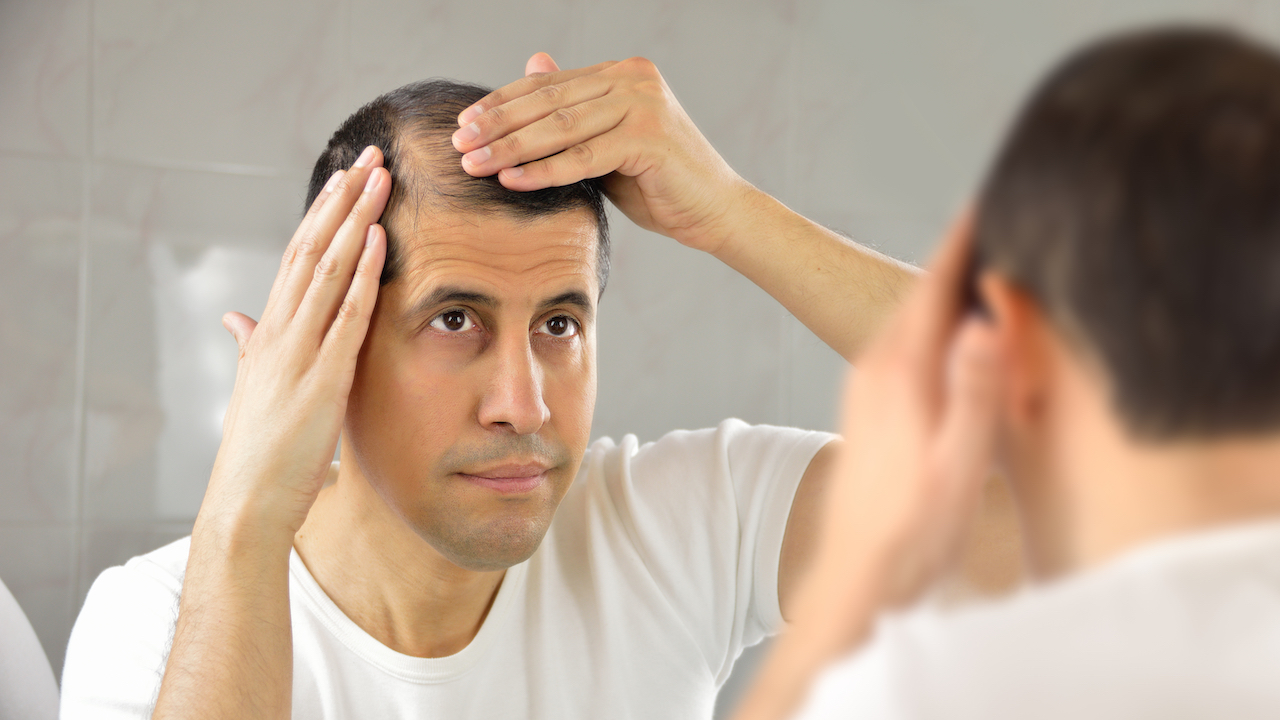What Your Hair is Trying to Tell About Your Health
5 min read
What Your Hair is Trying to Tell About Your Health
Every single day we spend time thinking about our hair. How we want to style it each morning, when it’s time to schedule a haircut or coloring session, which shampoo and conditioner to use when we wash it, and what treatments we should give it in order to keep it looking its best. But nutritionists tell us that we should also spend some time considering something important about our hair: how does its condition reflect our health?
If our hair is thick, full, and lustrous, we probably don’t think twice about how its condition relates to our overall health, but if we are experiencing a change in our normal hair condition, if it’s feeling dry and brittle, or it’s thinning, there are a number of health-related issues that our hair may be trying to warn us about. So what does hair health tell us about our body?
Vitamin Deficiency and Hair Loss
Hair that has become brittle, dry, or thinning can indicate deficiencies of several essential vitamins and minerals in the body. If you suddenly notice broken, brittle hair that appears dry and dull, or if you are finding more than normal amounts of hair in your hair brush or shower drain, it can indicate that you need to increase your intake of some important nutrients in your diet. Ideally, this should be done by increasing the amounts of vitamin and nutrient rich foods in your daily diet, but incorporating supplements such as good hair vitamins into your daily routine can also be highly beneficial.
Vitamin D Deficiency
Vitamin D deficiency in the diet is one common cause of vitamin deficiency-related hair loss. While thinning, brittle hair is an indicator of this problem, being low in vitamin D can have more important impacts on your health. Vitamin D is essential in the human body to stimulate cell growth and renewal, to keep our immune system functioning properly, and to keep our bones, teeth, hair, and skin healthy.
Sun exposure is the primary way that humans obtain vitamin D. When our skin is exposed to sunlight it triggers a conversion of the cholesterol inside our skin cells into vitamin D. It is estimated that 40 percent of people today have less than optimal levels of vitamin D due to a number of factors, such as lack of outdoor time, use of sunscreen, and living in colder climates.
Vitamin D is only present in a limited number of foods, making it difficult to get adequate amounts of vitamin D in the diet alone. Cod liver oil, tuna, salmon, sardines, liver, and egg yolks are good sources of vitamin D. It’s also found as a supplement in milk. Because we don’t typically ingest enough of these foods daily, a vitamin D supplement can be beneficial.
Biotin Deficiency
Biotin, or vitamin B7, is another nutrient that can result in thinning hair, or hair and nails that are brittle and slow to grow. Biotin is often a key nutrient added to the best vitamins for hair growth. More severe biotin deficiency can result in chronic fatigue, muscle cramps and muscle pain, and tingling of the hands and feet. Biotin-rich foods include egg yolks, organ meat, fish, dairy, seeds, nuts, spinach, sweet potatoes, bananas, whole grains, meat, cauliflower and broccoli.
Vitamin A
Brittle or thinning hair can also indicate a deficiency in essential vitamin A. Vitamin A supports healthy vision, lungs, skin, teeth, kidneys, liver, reproductive system, immune system, and bones, as well as hair and nails. Vitamin A is present in many foods, including orange and yellow vegetables such as carrots and sweet potatoes. It’s also found in red bell peppers, broccoli, spinach and all dark green vegetables, as well as liver and some varieties of fish.
Interestingly, too much vitamin A in the diet can also be responsible for hair loss, so it’s important to maintain a good balance in your diet. Most cases of vitamin A toxicity result from over-intake of supplements.
Iron Deficiency
Experiencing hair loss can also be a sign of iron deficiency. Iron is critical in the human body, as it helps to create hemoglobin which is necessary for carrying oxygen to cells. If iron is lacking in the body, the iron that remains will be channeled into use for maintaining essential organ health, meaning your hair, skin, and nails will suffer because critical organs take precedence over these systems. If your iron deficiency is advanced enough to cause hair loss, it could mean that you have iron deficiency related anemia. Your doctor can diagnose and treat this serious issue.
Protein Deficiency
Lack of protein in the diet has also been linked to hair loss. While protein deficiency is uncommon in diets today, people who have trouble digesting protein, such as those who have recently undergone gastric bypass surgery, may need protein supplements added to their diet.
Other Health Issues Related to Hair Health
Besides vitamin deficiencies, dry, brittle, thinning hair can indicate other health issues such as thyroid disease. A change in hair condition and thinning of hair can indicate hypothyroidism, a condition occurring when the thyroid doesn’t produce enough hormones. This condition should be diagnosed and treated by a doctor.
For women, the onset of menopause may be the culprit causing hair loss. Hair condition and volume commonly worsen in women nearing age fifty, or in the months and years before and after that age. This is caused by the natural change in hormonal balance that occurs during this time.
Stress may also be responsible for hair loss in some individuals. Stress hormones such as cortisol can cause hair to enter into a prolonged resting phase when the hair will no longer grow. Hair in this phase is much more likely to shed. Severe stress may also result in a condition known as alopecia areata, in which the body’s own immune system attacks the hair follicles. This results in patchy hair loss.
If you suspect any of these health conditions may be causing your hair loss, it’s important to schedule an appointment with your doctor. Vitamin and iron deficiencies can be identified through a simple blood test, as can thyroid disorders. Your doctor will discuss a health plan for you going forward that can alleviate your symptoms, including thinning or brittle hair.







